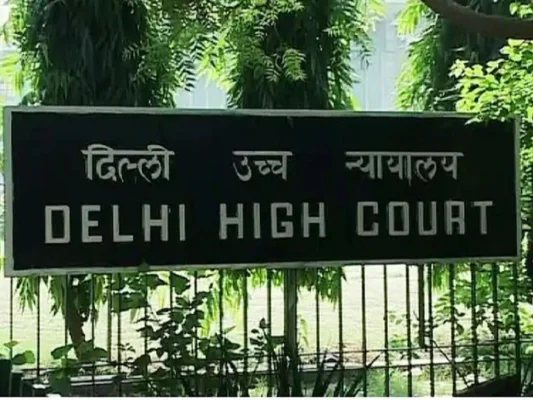न्यायमूर्ति अंजनी कुमार मिश्रा और न्यायमूर्ति दीपक वर्मा की खंडपीठ एक आपराधिक मामले में निष्पक्ष जांच करने के लिए प्रतिवादी अधिकारियों को निर्देश देने की मांग वाली एक याचिका पर फैसला सुना रही थी।
Allahabad High Court इलाहाबाद हाई कोर्ट ने हाल ही में देखा है कि एक मजिस्ट्रेट के पास आपराधिक प्रक्रिया संहिता (Cr.P.C.) की धारा 156 (3) के तहत जांच की निगरानी करने की शक्ति है और जो व्यक्ति पुलिस जांच से पीड़ित है वह जांच की निगरानी के लिए मजिस्ट्रेट के पास जा सकता है।
न्यायमूर्ति अंजनी कुमार मिश्रा और न्यायमूर्ति दीपक वर्मा की खंडपीठ एक सत्यप्रकाश की याचिका पर सुनवाई कर रही थी जिसमें प्रतिवादी अधिकारियों को भारतीय दंड संहिता की धारा 363 (अपहरण के लिए सजा), 366 (अपहरण, अपहरण या महिला को उसकी शादी के लिए मजबूर करने आदि) के तहत एक आपराधिक मामले की निष्पक्ष जांच करने का निर्देश देने की मांग की गई थी।
The Apex Court in the case of Sudhir Bhaskarrao Tambe Vs. Hemant Yashwant Dhage, (2016) 6 SCC 277, following its earlier decision in Sakiri Vasu Vs. State of U.P., (2008) 2 SCC 409, held as follows:
“2. This Court has held in Sakiri Vasu v. State of U.P., that if a person has a grievance that his FIR
has not been registered by the police, or having been registered, proper investigation is not being
done, then the remedy of the aggrieved person is not to go to the High Court under Article 226 of
the Constitution of India, but to approach the Magistrate concerned under Section 156(3) Cr.P.C.
If such an application under Section 156(3) CrPC is made and the Magistrate is, prima facie,
satisfied, he can direct the FIR to be registered, or if it has already been registered, he can direct
proper investigation to be done which includes in his discretion, if he deems it necessary,
recommending change of the investigating officer, so that a proper investigation is done in the
matter. We have said this in Sakiri Vasu case because what we have found in this country is that
the High Courts have been flooded with writ petitions praying for registration of the first
information report or praying for a proper investigation.
“3. We are of the opinion that if the High Courts entertain such writ petitions, then they will be
flooded with such writ petitions and will not be able to do any other work except dealing with such
writ petitions. Hence, we have held that` the complainant must avail of his alternate remedy to
approach the Magistrate concerned under Section 156(3) Cr.P.C. and if he does so, the Magistrate
will ensure, if prima facie he is satisfied, registration of the first information report and also
ensure a proper investigation in the matter, and he can also monitor the investigation.”
The power of the Magistrate to monitor investigation in exercise of his power under section 156(3) Cr.P.C. has also been recognized in the decision of the Apex Court in the case of T.C. Thangaraj vs. V. Engammal, (2011) 12 SCC 328 : (2012) 1 SCC (Cri) 568, where, in the light of the law laid down in Sakiri Vasu’s case (supra), it has been observed as follows:
“12. It should also be noted that Section 156 (3) of the Code of Criminal Procedure provides for a
check by the Magistrate on the police performing their duties and where the Magistrate finds that
the police have not done their duty or not investigated satisfactorily, he can direct the police to
carry out the investigation properly, and can monitor the same. (See Sakiri Vasu v. State of U.P.).”
Recently, the Hon’ble Supreme Court in M.Subramaniam and another Vs. S.Janaki and another, 2020 SCC online S.C. 341 affirmed the view taken by the Supreme Court in Sakiri Vasu Vs. State of Uttar Pradesh (supra) and held as under:
“17. In our opinion Section 156 (3) Cr.P.C. is wide enough to include all such powers in a
Magistrate which are necessary for ensuring a proper investigation, and it includes the power to
order registration of an FIR and of ordering a proper investigation if the Magistrate is satisfied
that a proper investigation has not been done, or is not being done by the police. Section 156 (3)
Cr.P.C., though briefly worded, in our opinion, is very wide and it will include all such incidental
powers as are necessary for ensuring a proper investigation.”
याचिकाकर्ता का यह मामला था कि पुलिस आरोपी व्यक्तियों की मिलीभगत से काम कर रही थी और न तो आरोपी व्यक्तियों को गिरफ्तार किया गया था और न ही उनके खिलाफ कोई आरोप पत्र दायर किया गया था।
इसके अलावा, याचिकाकर्ता जिस तरह से जांच की जा रही थी, उससे दुखी था।
वर्तमान याचिका का निपटारा करते हुए, उच्च न्यायालय ने याचिकाकर्ता को Cr.P.C. के तहत उपलब्ध मजिस्ट्रेट की शक्ति का उपयोग करने के लिए सर्वोच्च न्यायालय द्वारा ऊपर बताए गए कानून के आलोक में स्वतंत्रता प्रदान की।
केस टाइटल – सत्यप्रकाश बनाम उत्तर प्रदेश राज्य और अन्य
केस नंबर – CRIMINAL MISC. WRIT PETITION No. – 23 of 2022













